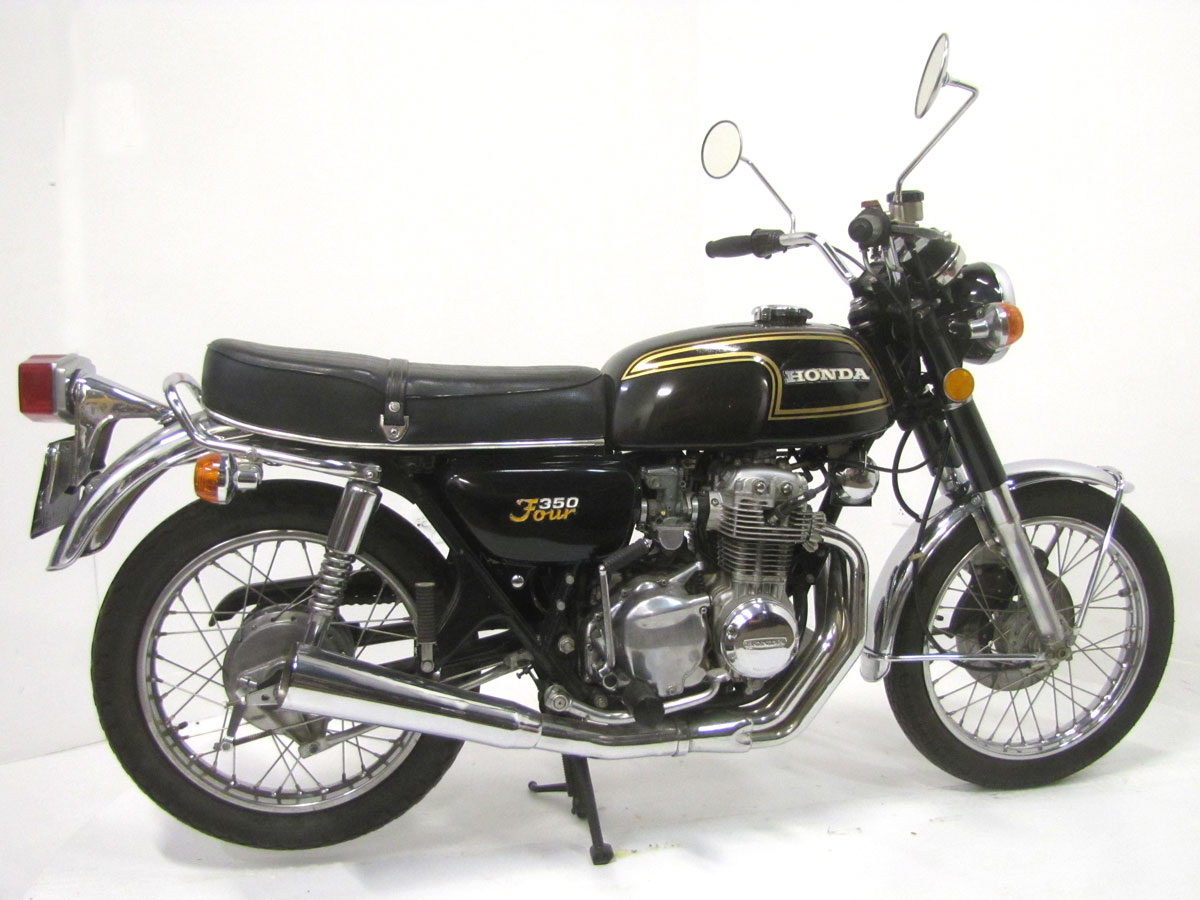
Things were pretty mellow regarding Japanese mid-size bike development in the mid-1960’s. There were two-stroke 250’s, 350’s and a 500 from three makers and Honda started offering the CB450 about 1965. Then in late 1968 we opened our copies of Cycle and Cycle World to photos from European industry motorcycle shows and saw the Honda CB750! Four megaphone mufflers, the brilliant engine sticking out from under the candy apple tank and that glorious machined brake rotor up front. If you were riding around 1969, even if you loved British bikes or Harleys, you couldn’t help but stare.
In that era the 750cc bike, a “45,” was king and what was road raced and dirt tracked in most places. In fact the Dick Mann ridden Honda CB750 won the Daytona 200 in 1970. But Honda realized riders might want something a bit smaller, more manageable. In 1972 they offered the CB350F and CB500 Four, both in-line fours mimicking the big CB750 though with vertical cylinders. Later each was punched out to 400 and 550ccs respectively. The 350’s and 400’s were sweet, but typical of in-line fours of the era, you had an 8500 to 10,000 RPM redline and you’d better use it to get some acceleration. The CB400F’s remain very collectible with their 4 into 1 pipe and decked seat, production Cafe Racers of sorts. The more docile four pipe 350F is collectible too, but the exhaust systems are very prone to rust through and maybe one in five good bikes have stock exhausts any longer.
The 350F rolling chassis is pretty typical for the era, a mix of tubes and stampings. Like its big brothers, it has a disk brake in front, and drum in the rear, free standing tach and speedo, flip gas cap, dual seat. As 350cc bikes, this 350F, the CB/CL 350K3 and SL350 Motosports were sold in dealerships side by side in this era. The F was sold 1972 to 1974. Of all the Honda fours, the 350 is likely the smoothest running, essentially vibration free.
This 1974 Honda CB350F with an aftermarket four-into-one
Specifications:
-
- Engine: In-Line Four-Cylinder SOHC
- Type: Air-Cooled, Wet Sump
- Bore & Stroke: 47mm x 50mm
- Displacement: 347 cc
- Ignition: Battery & Coil
- Carburetor: Four 22mm Keihins
- Horsepower: 34HP / 8000RPM Redline
- Starting: Kick & Electric
- Clutch: Wet, Multi-plate
- Transmission: 5-Speed
- Final Drive: Chain Driven
- Frame: Tubular Steel Cradle
- Suspension: Hydraulic Fork / Swingarm, Dual Shocks
- Brakes: 260mm Disk Front / 179mm Drum Rear
- Wheelbase: 57.5 Inches
- Wheels/Tires: 3.00 x 19 / 3.50 x 18
- Weight: 352 Pounds, Dry
Leave a Reply
Want to join the discussion?Feel free to contribute!

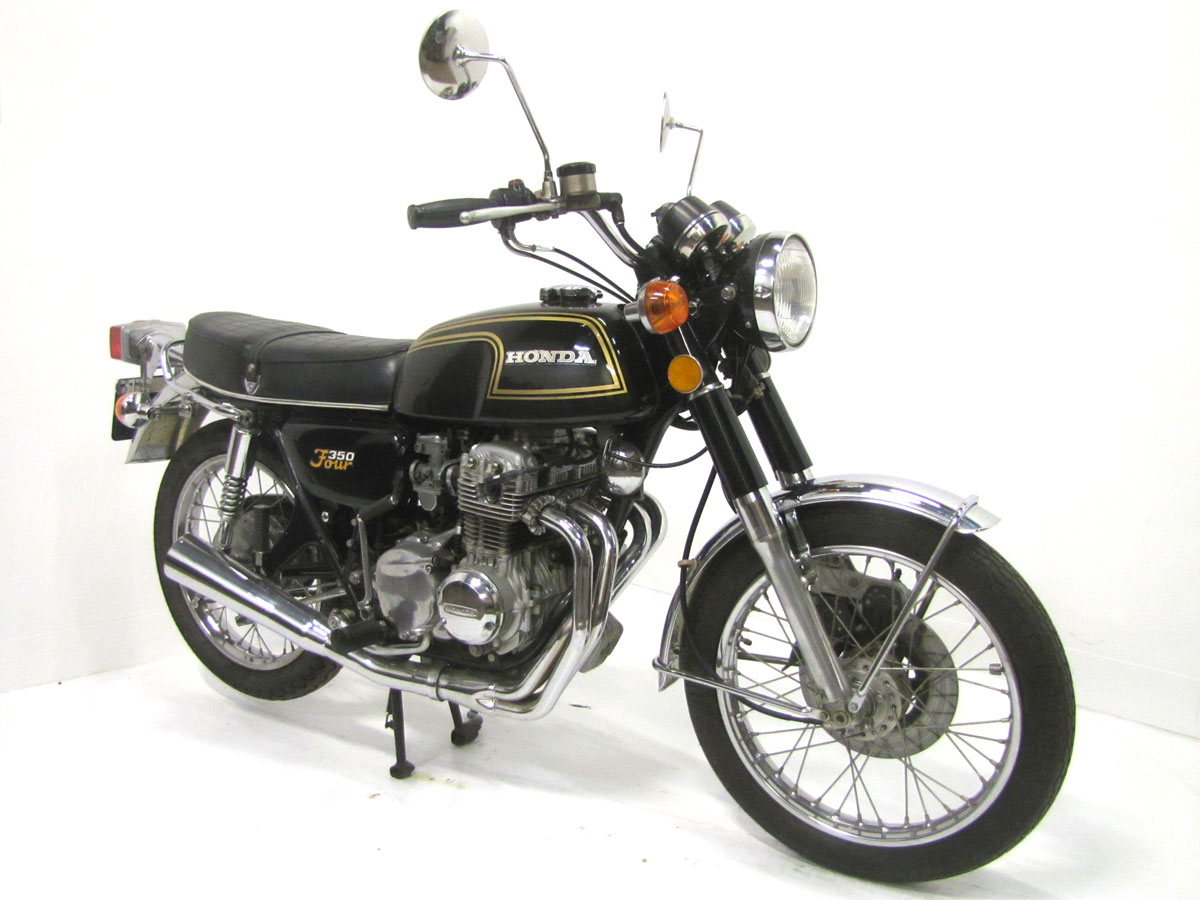
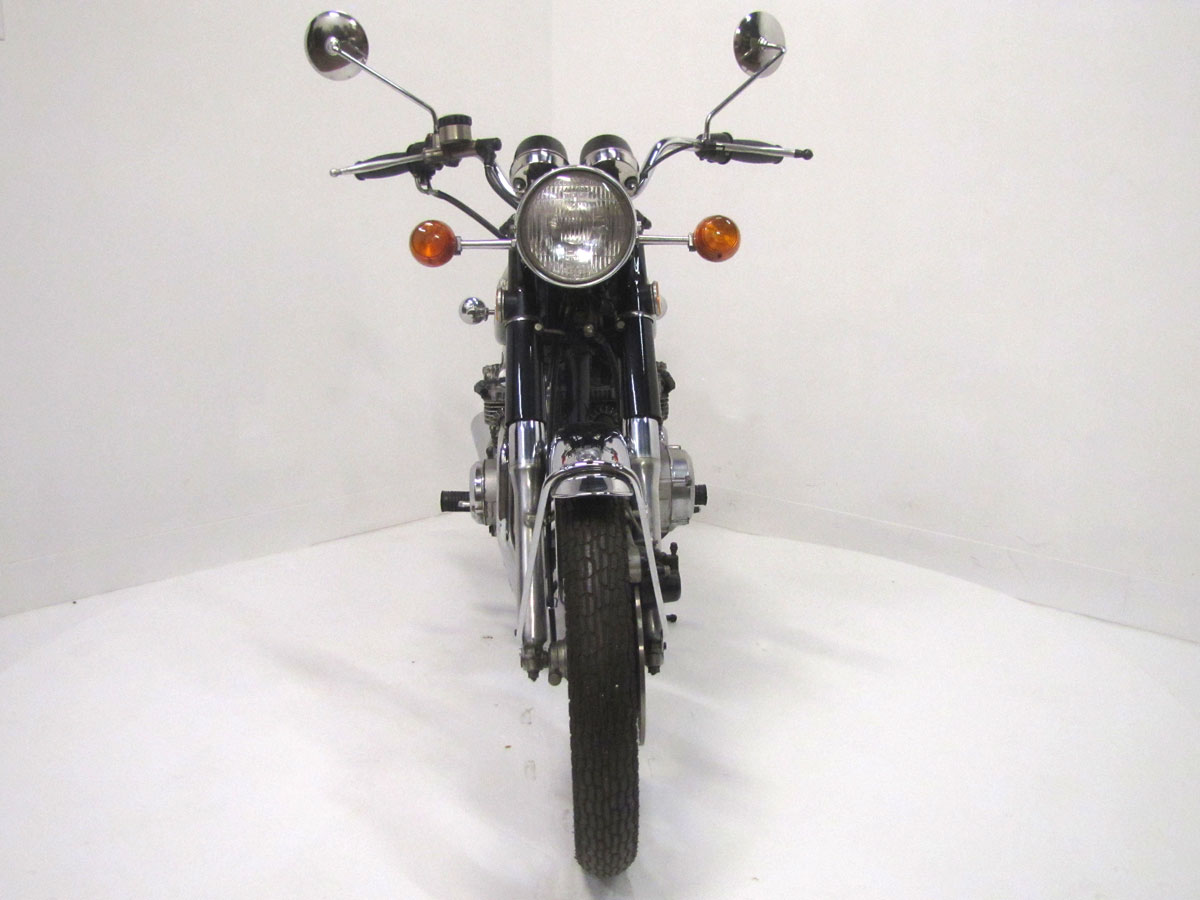
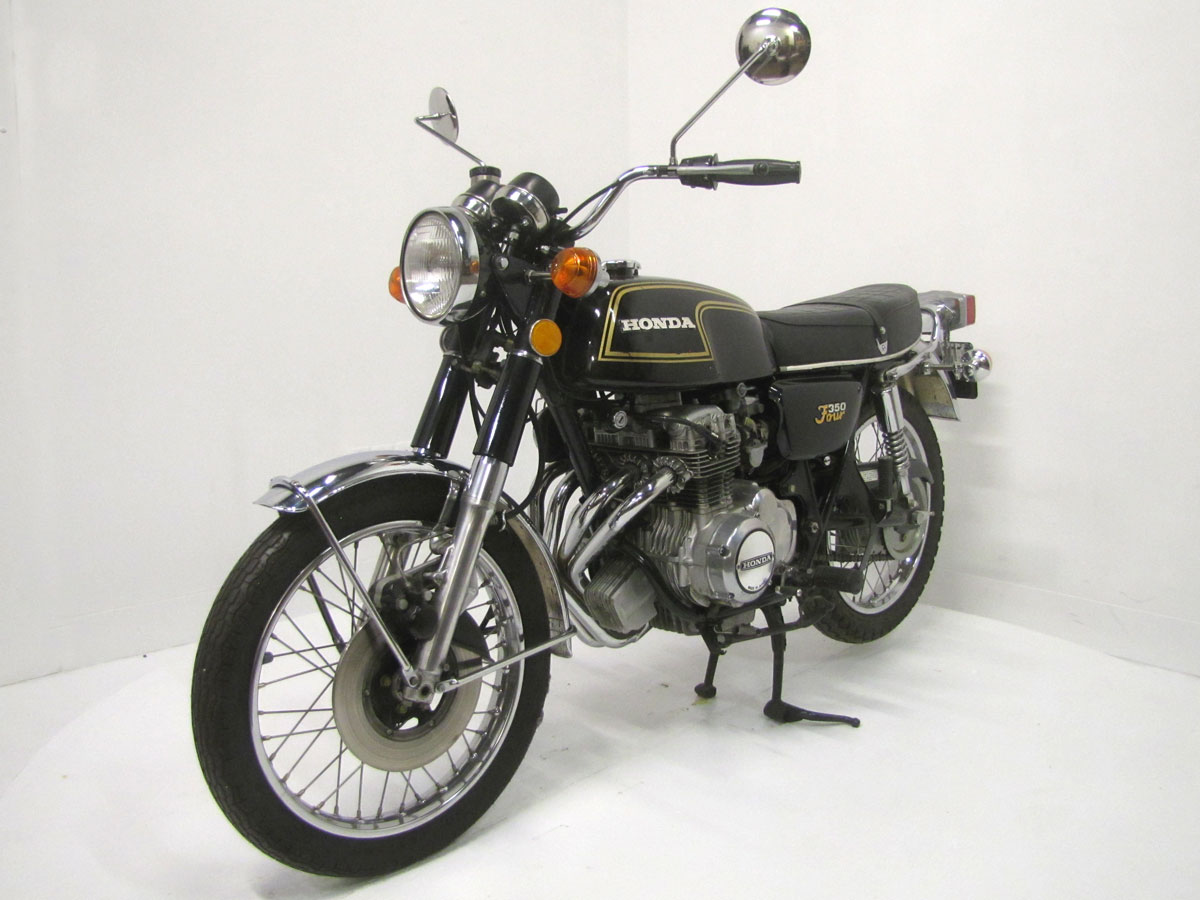
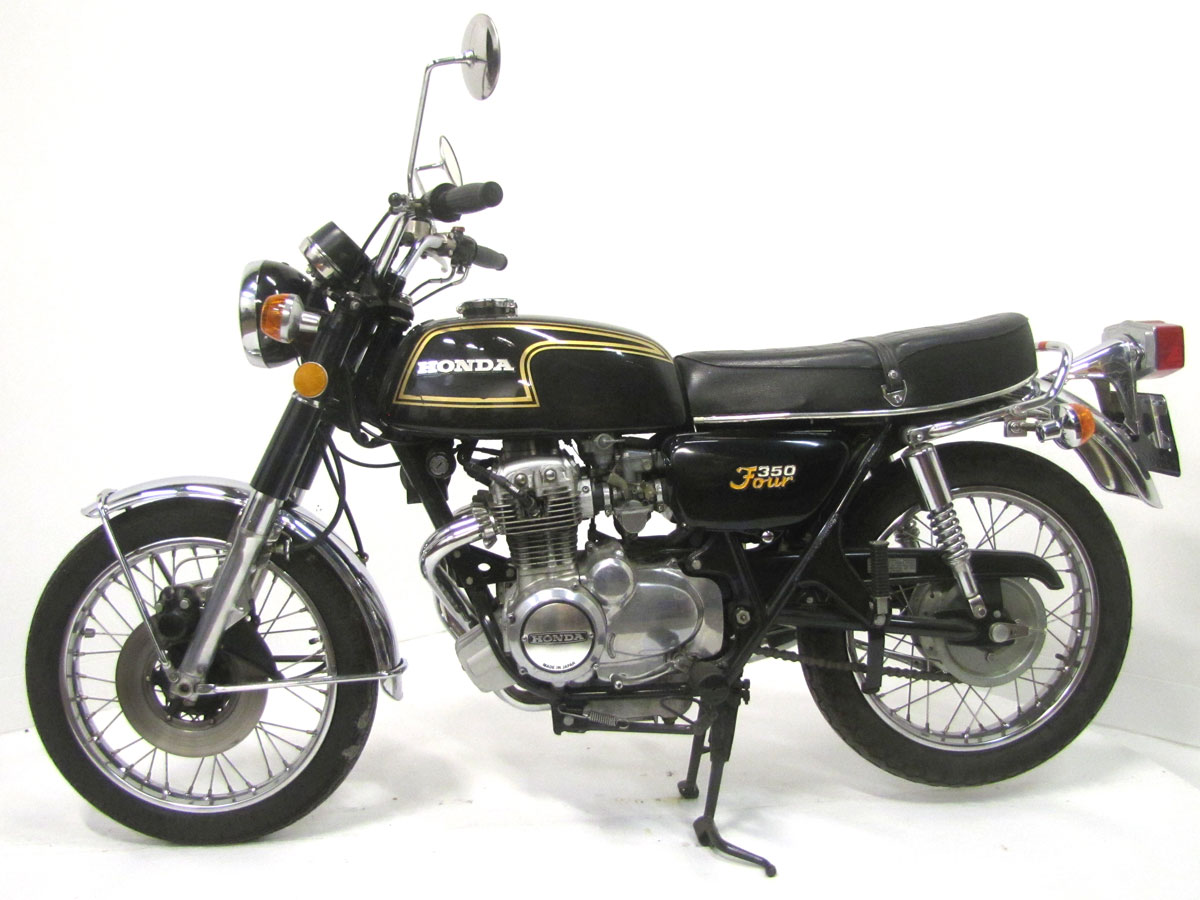
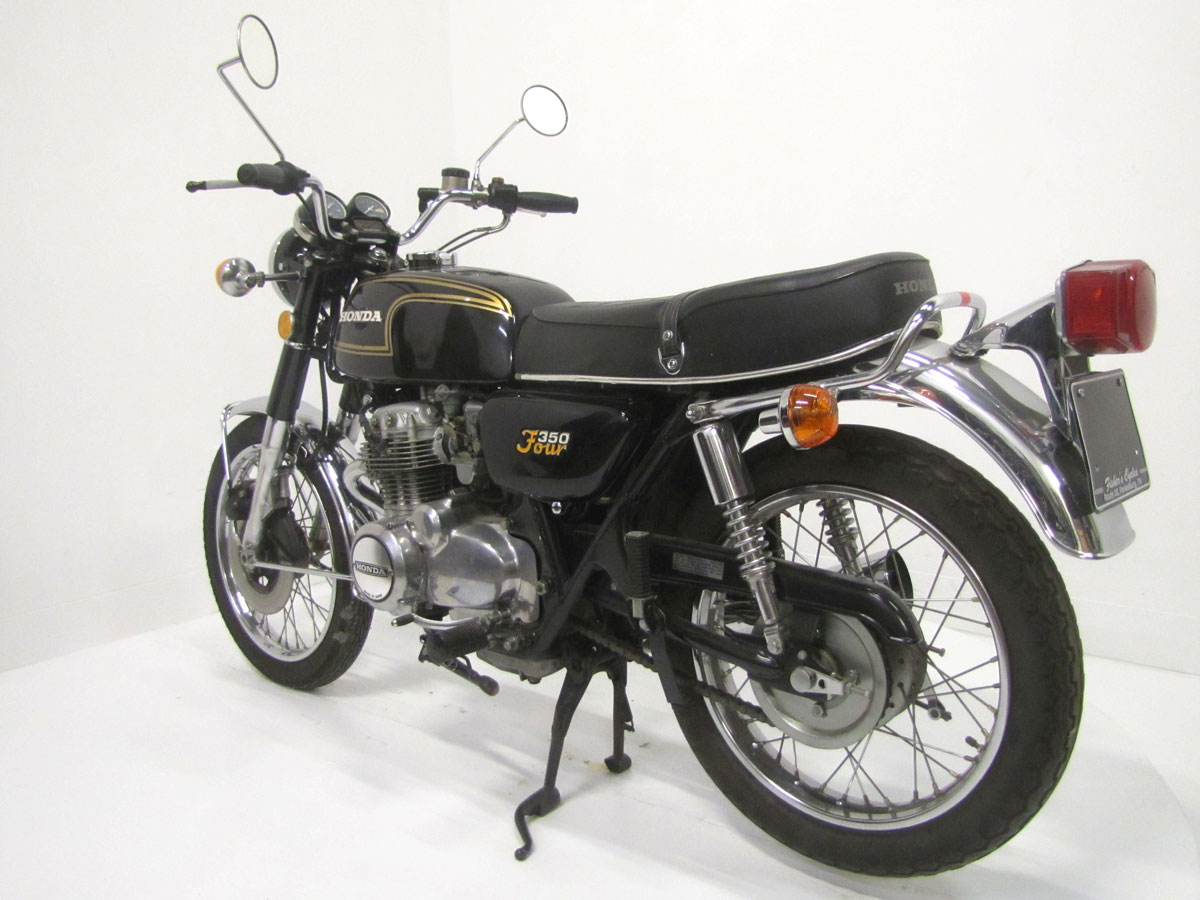
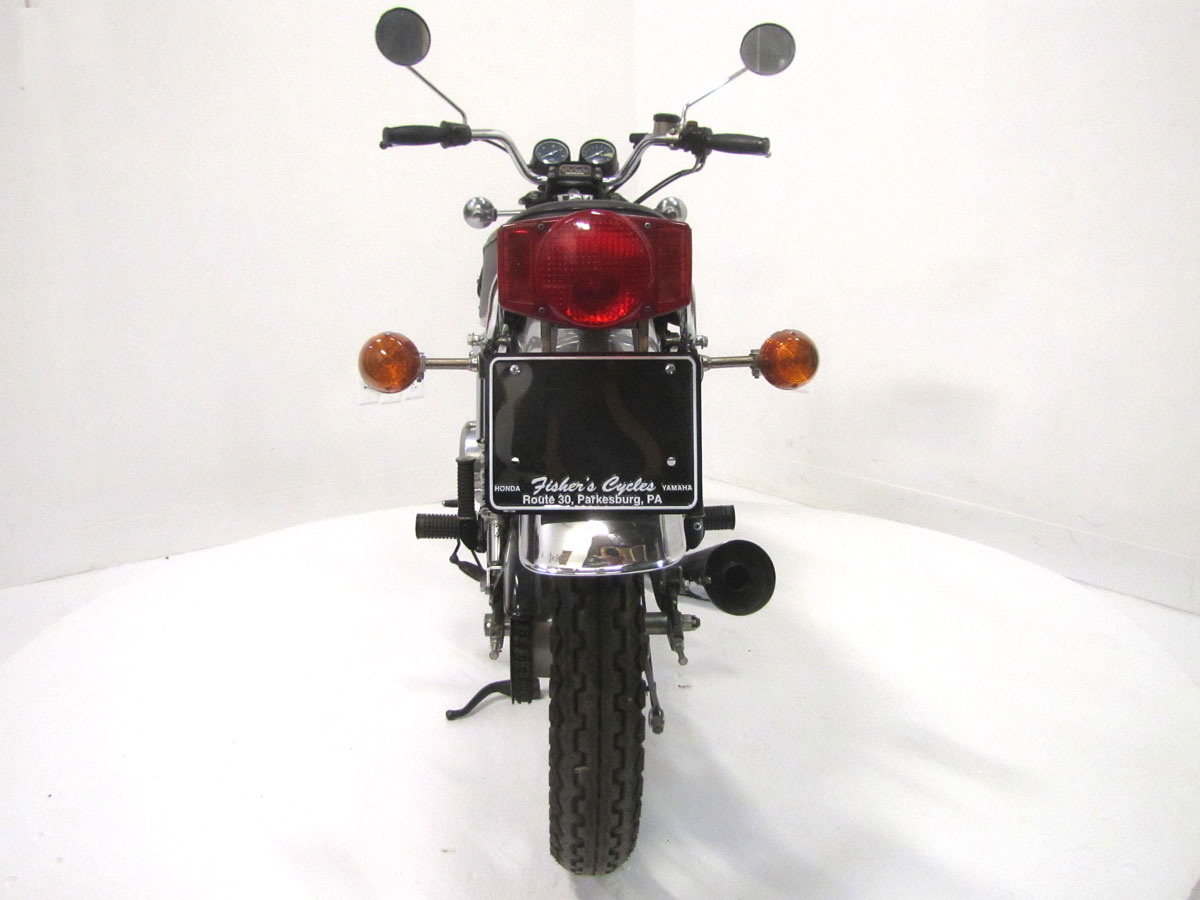
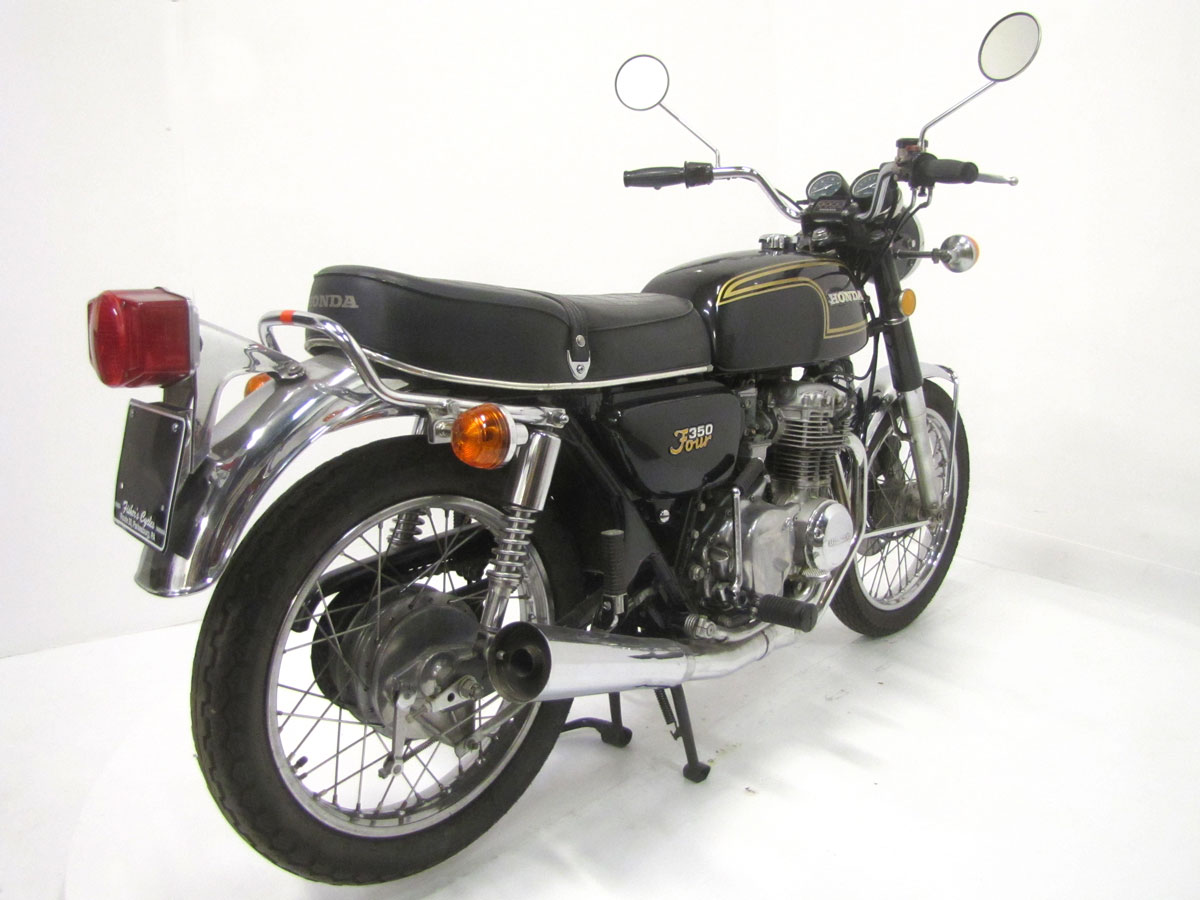
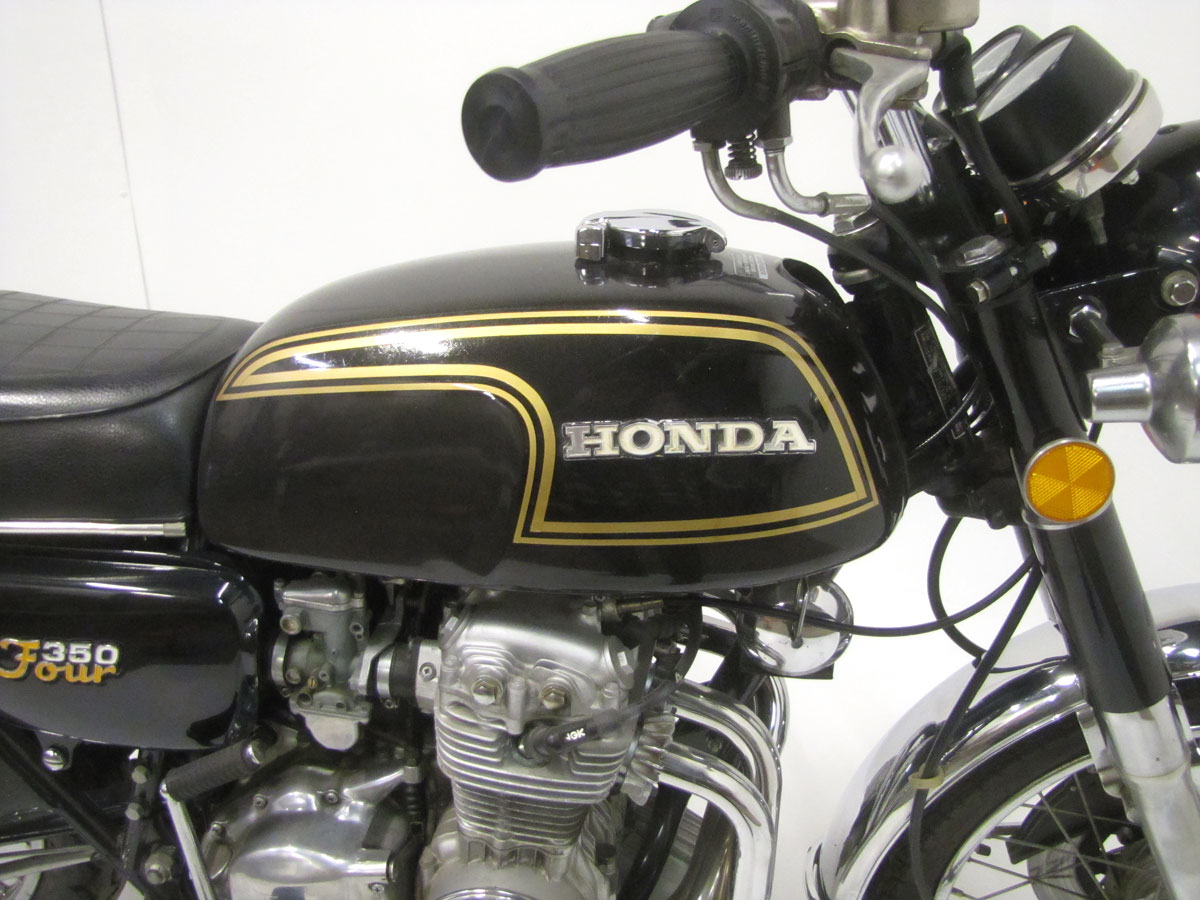
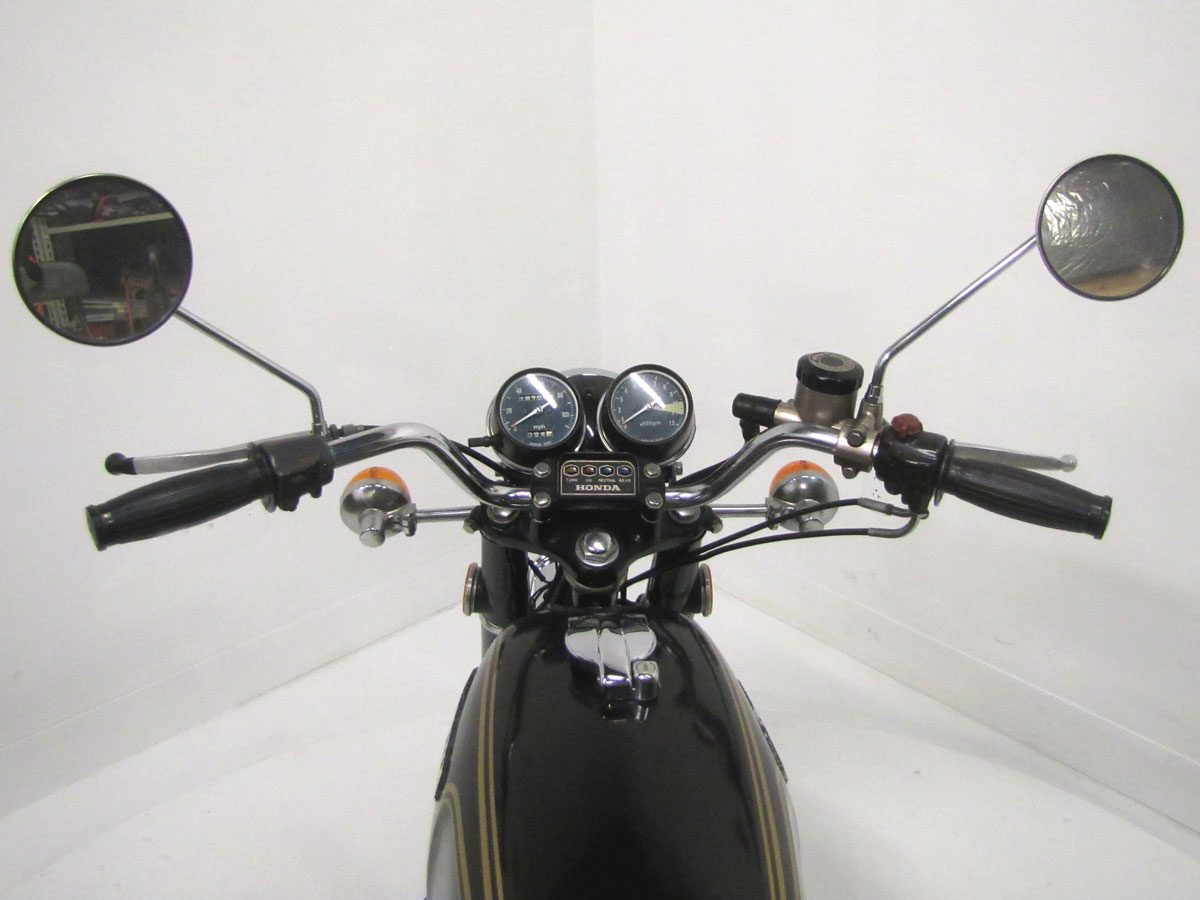
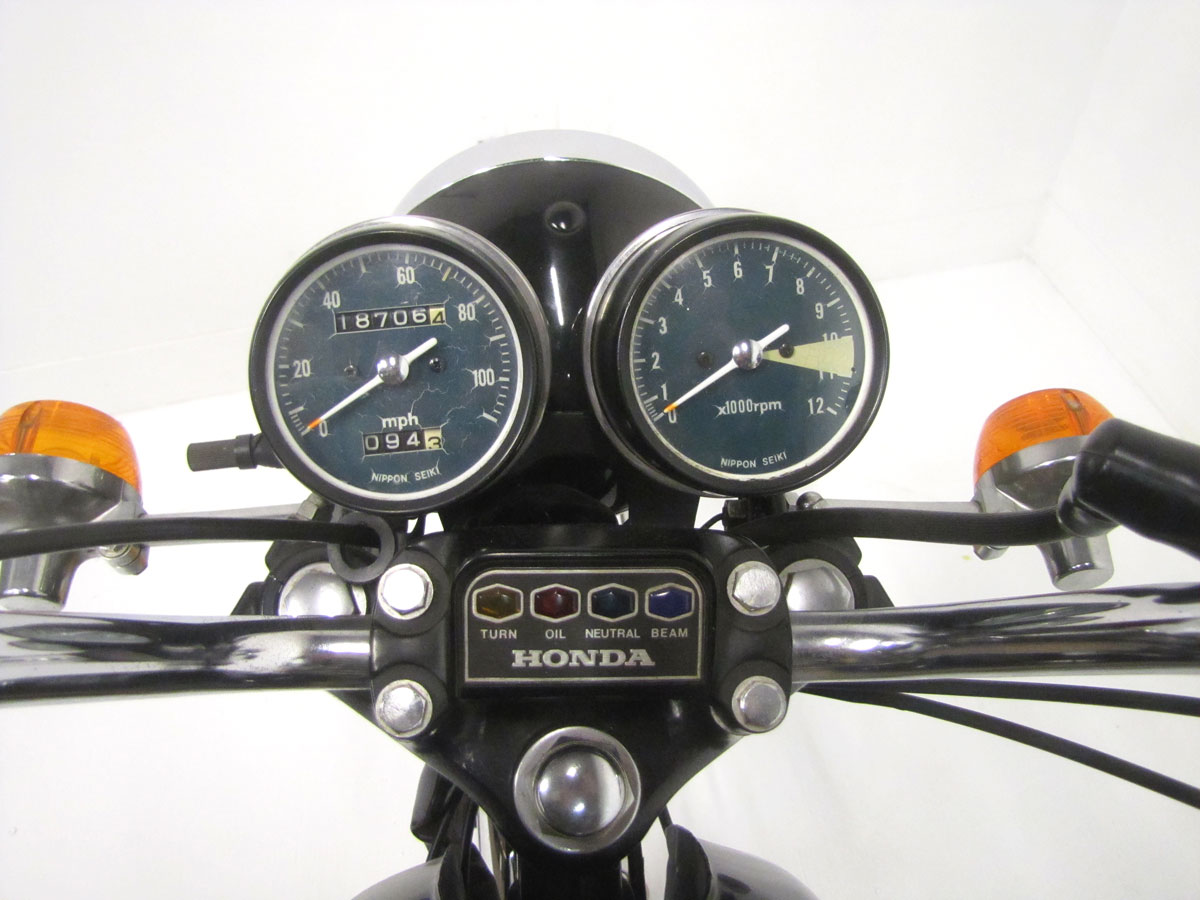
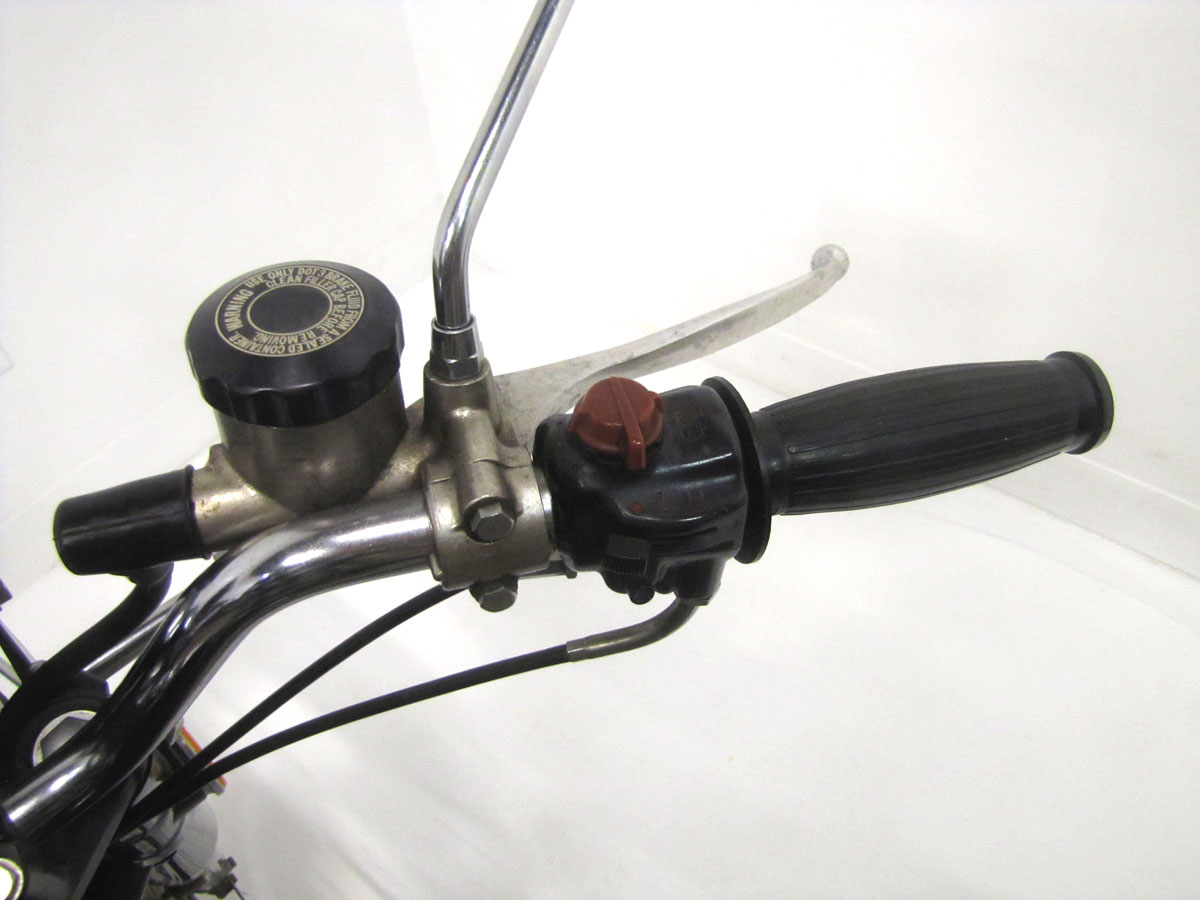
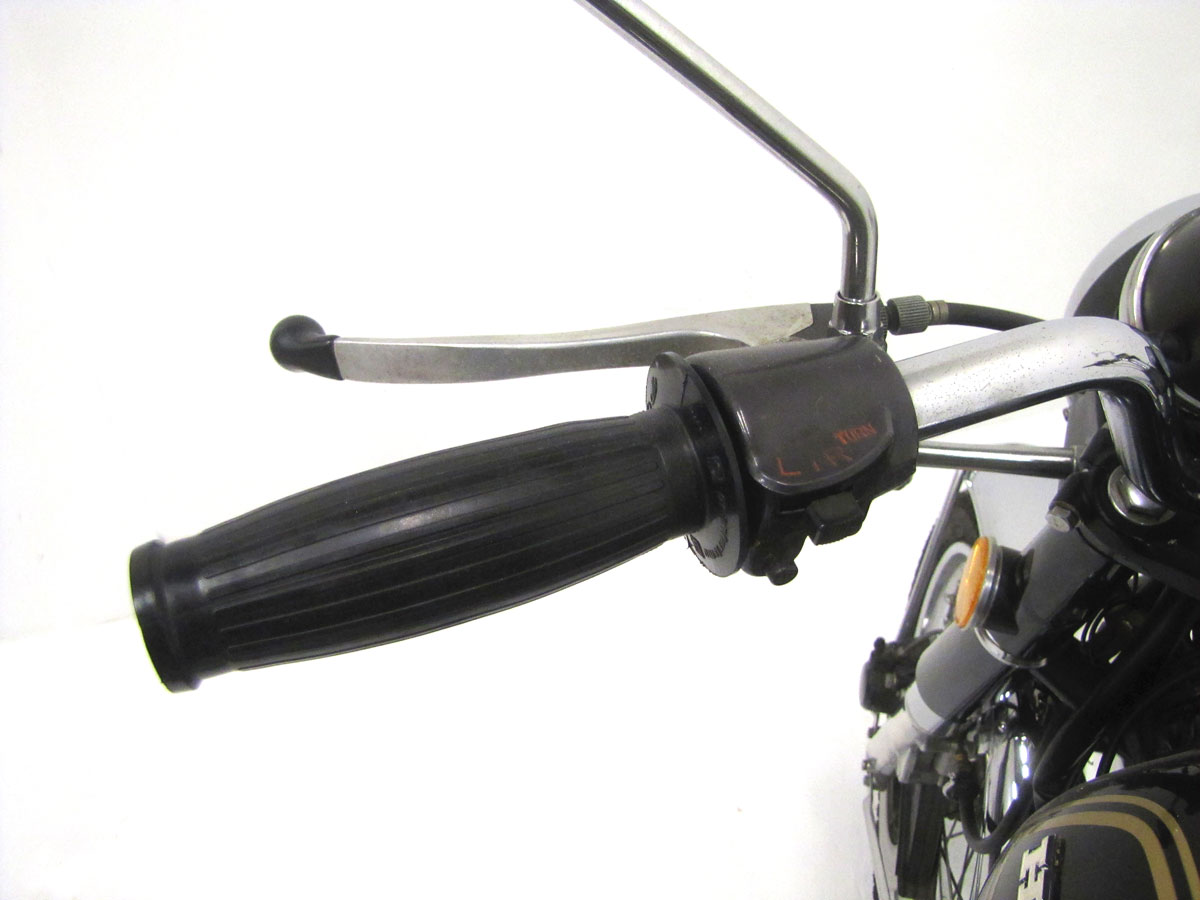
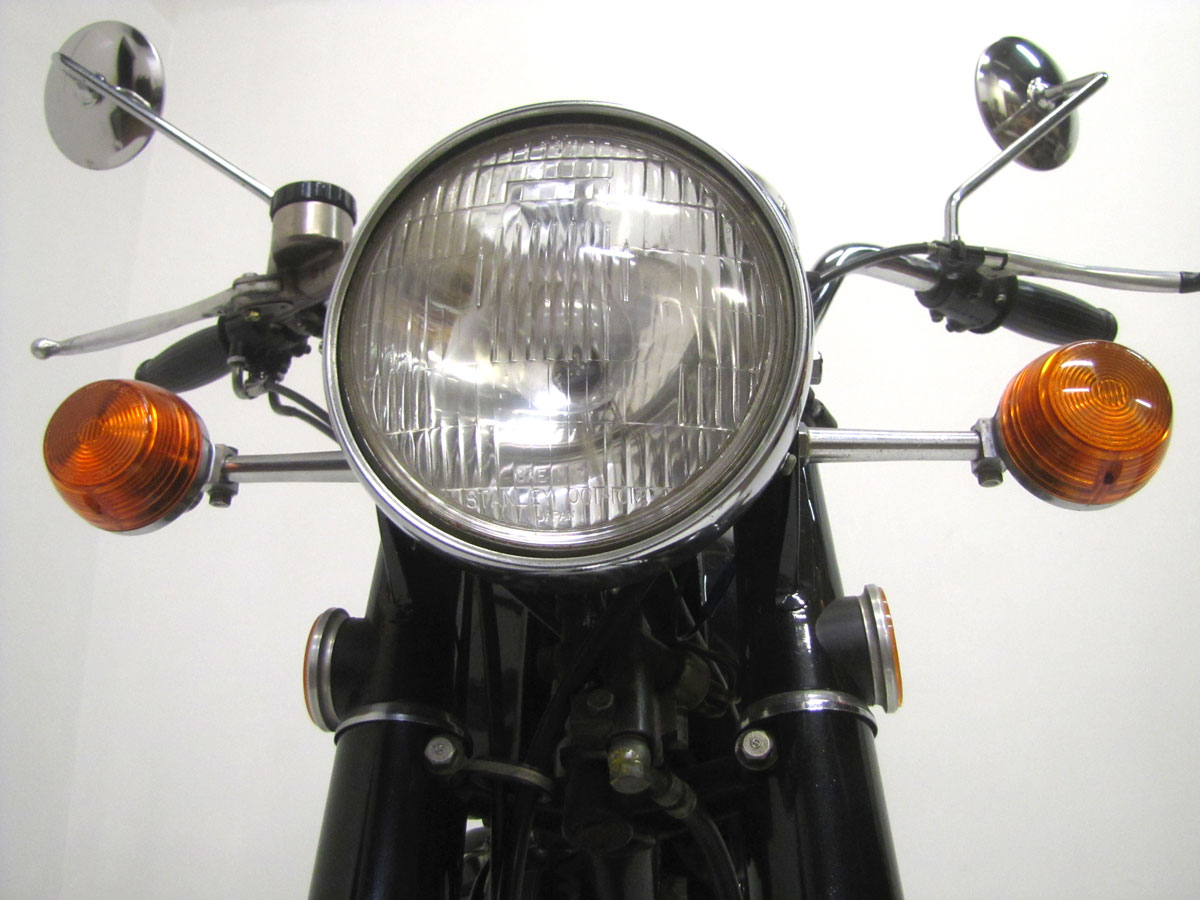
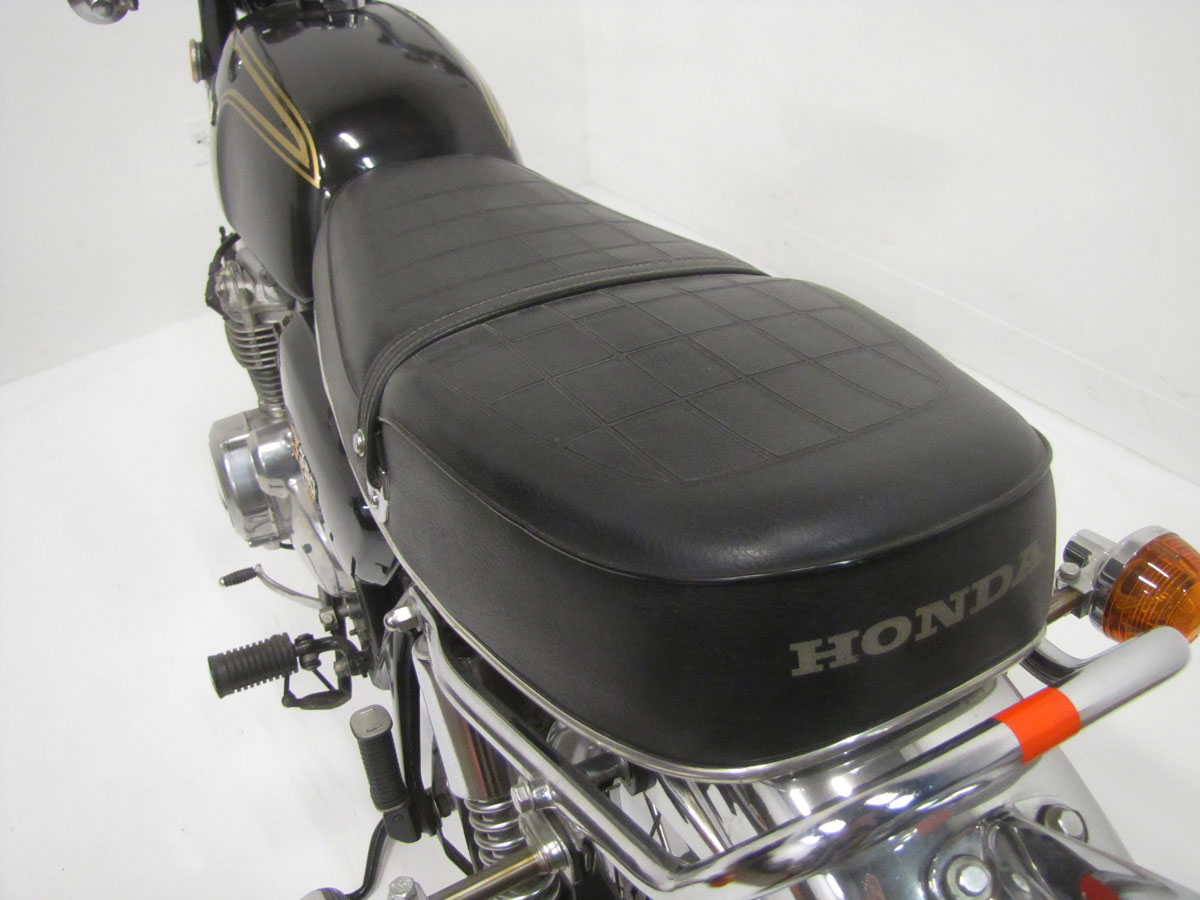
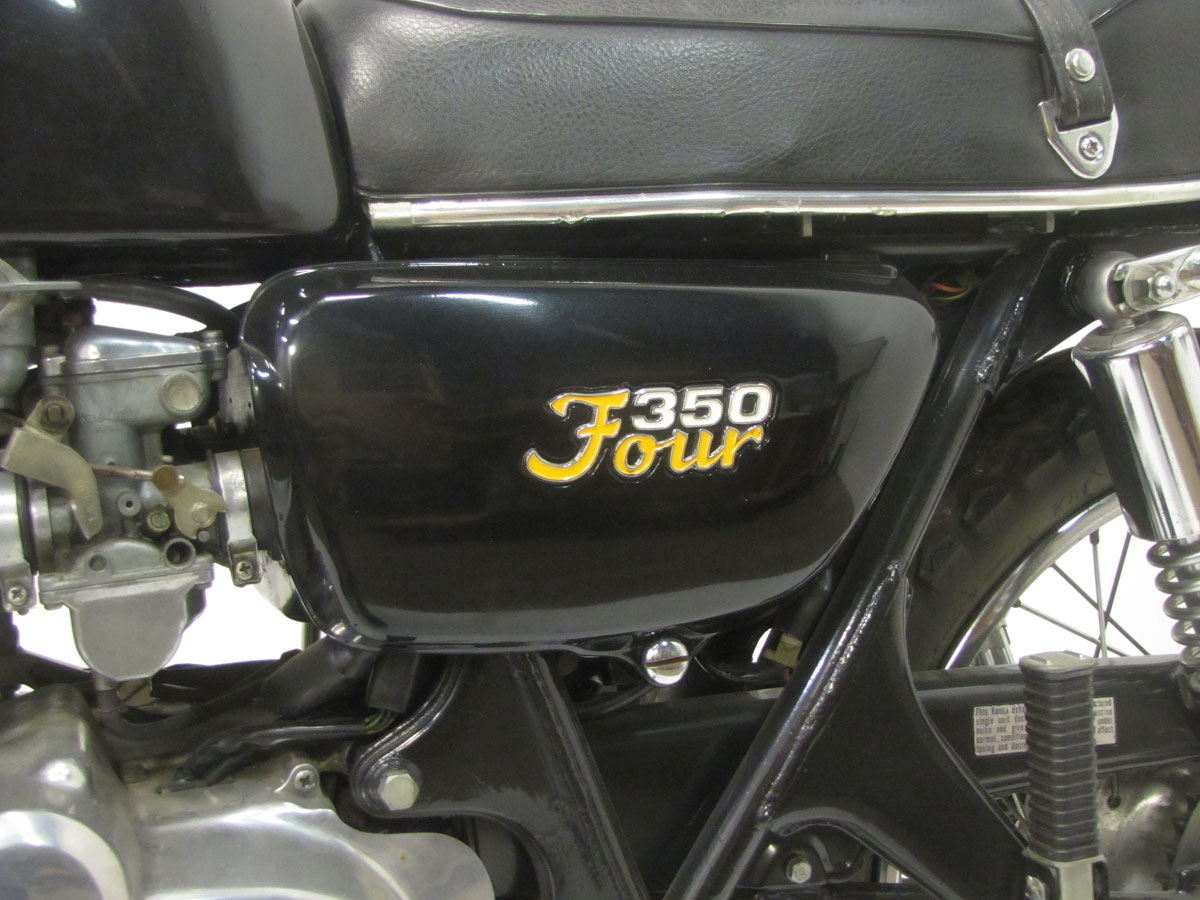
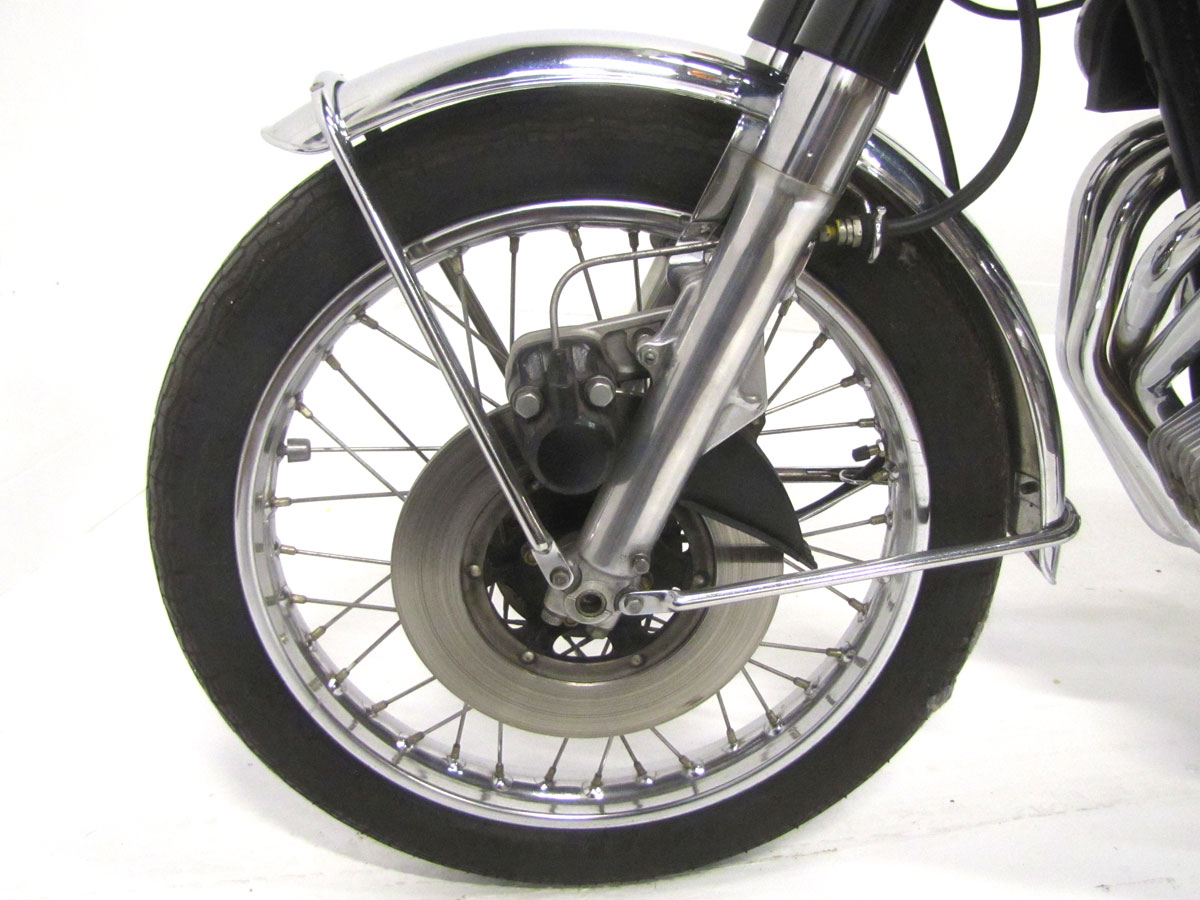
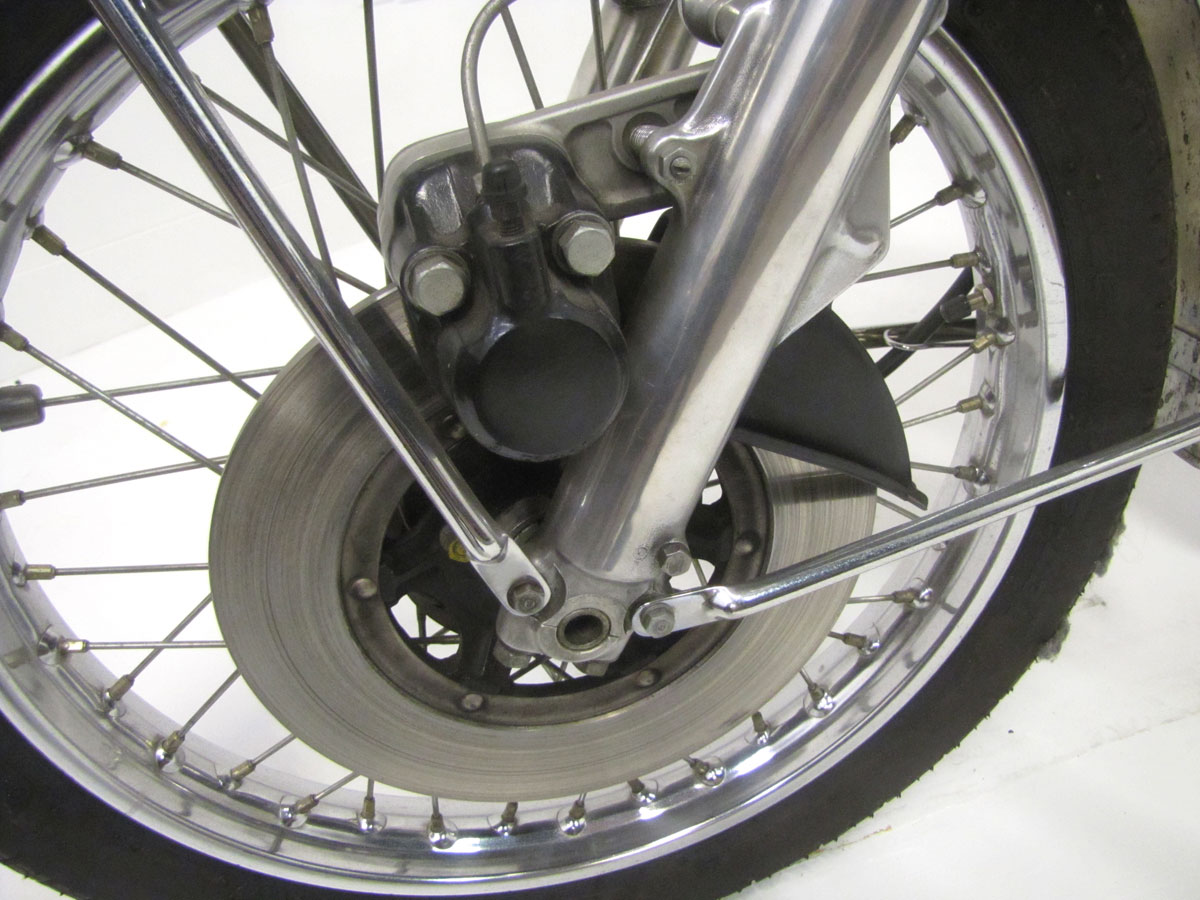
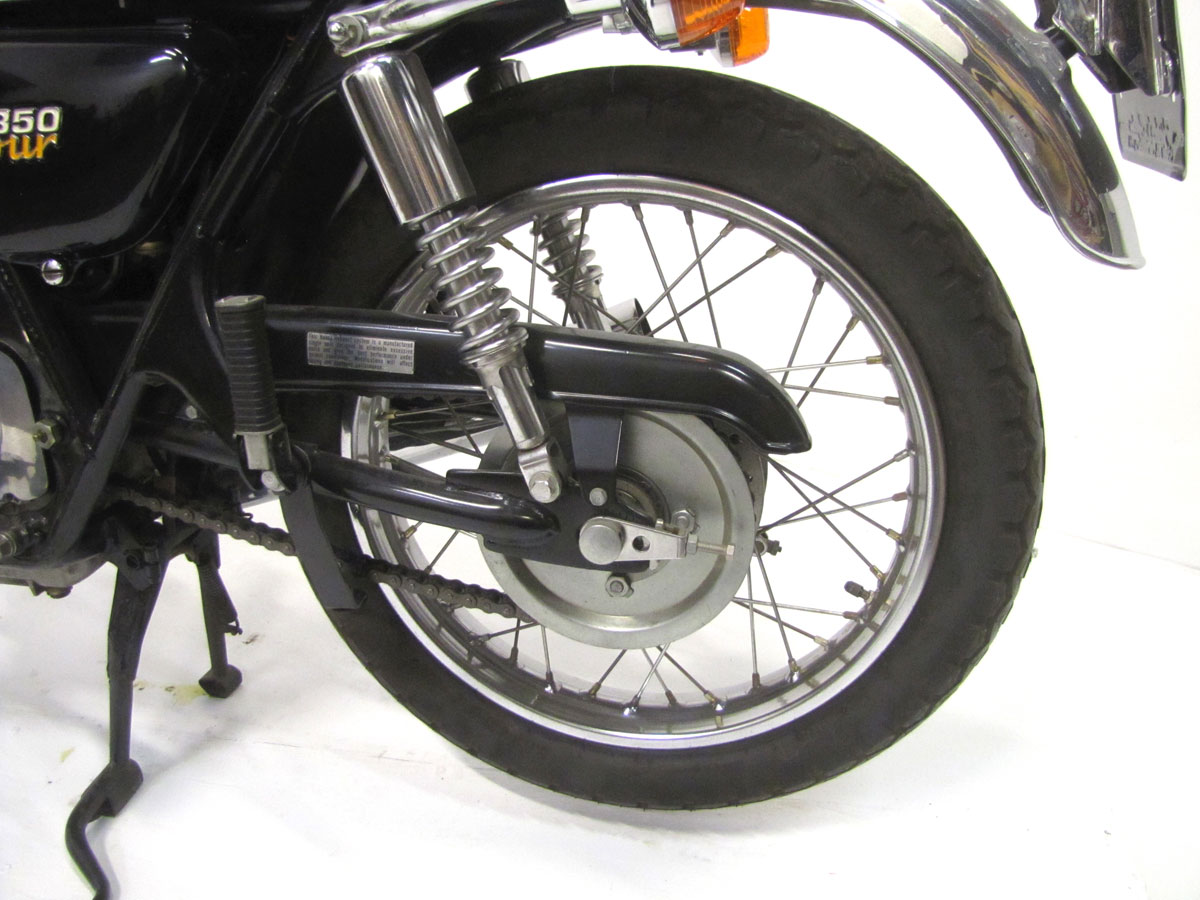
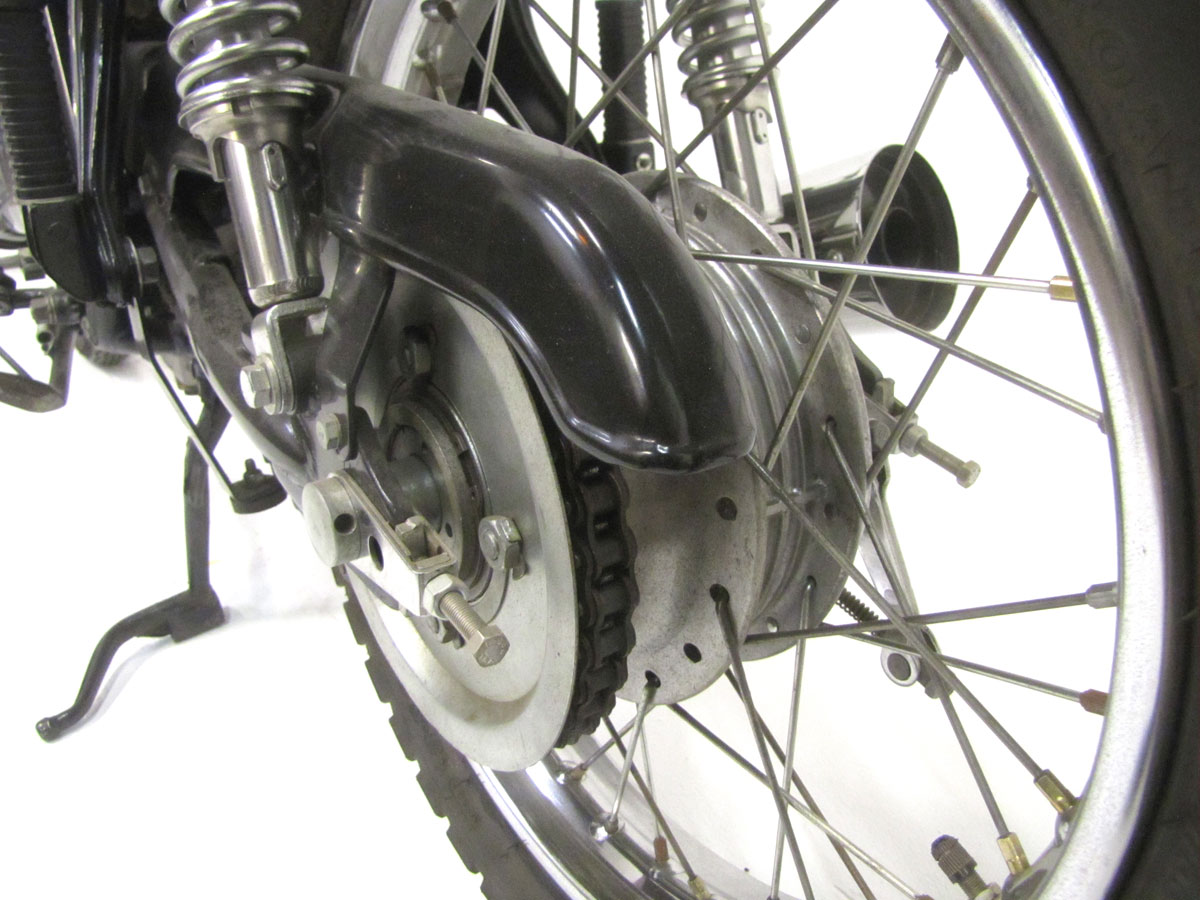
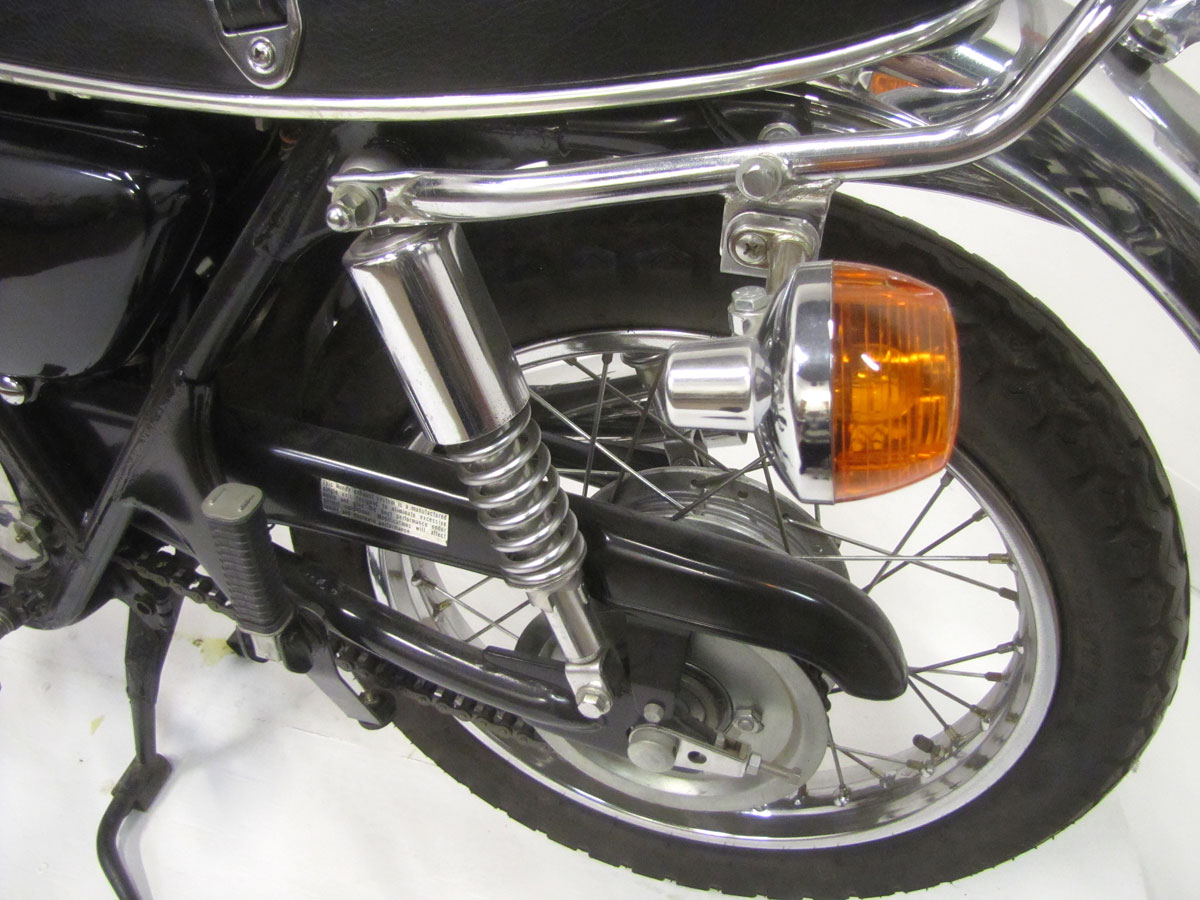
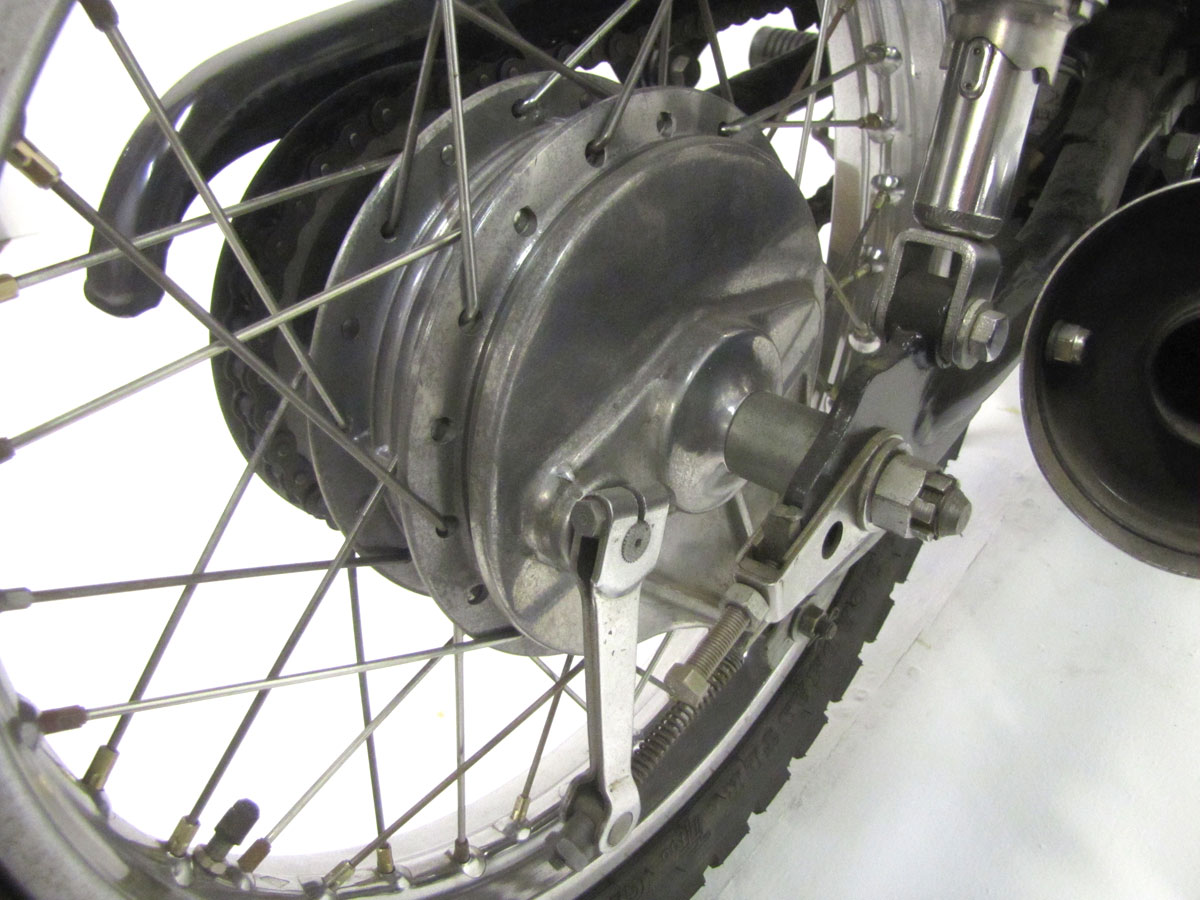
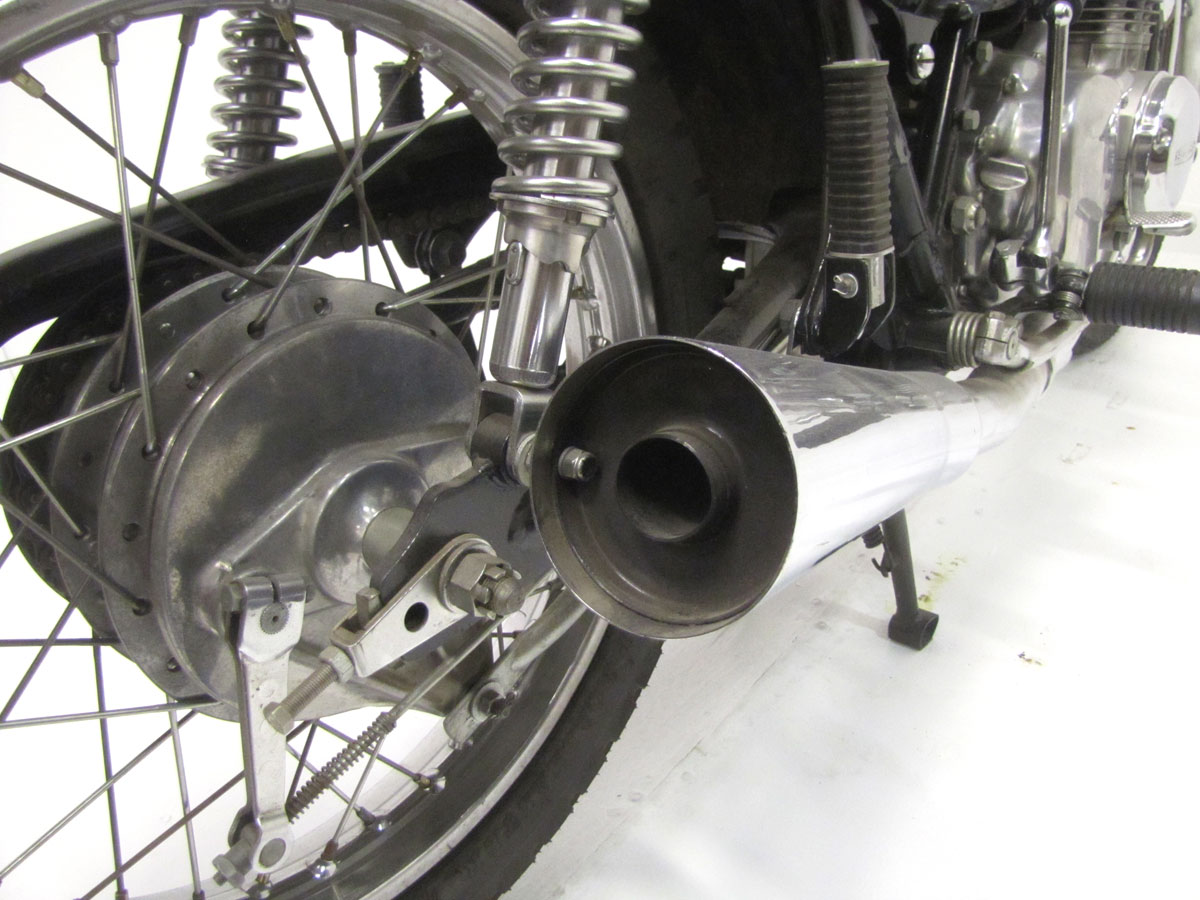
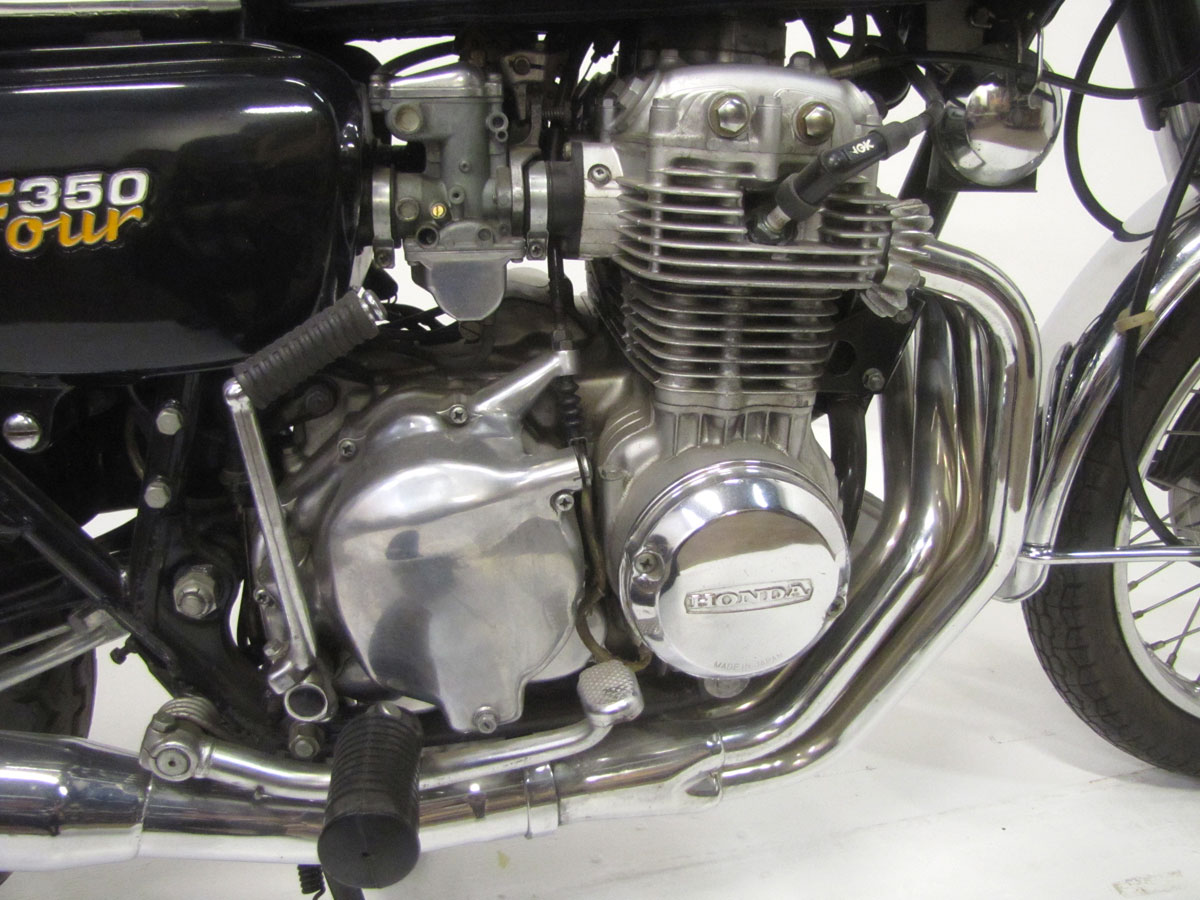
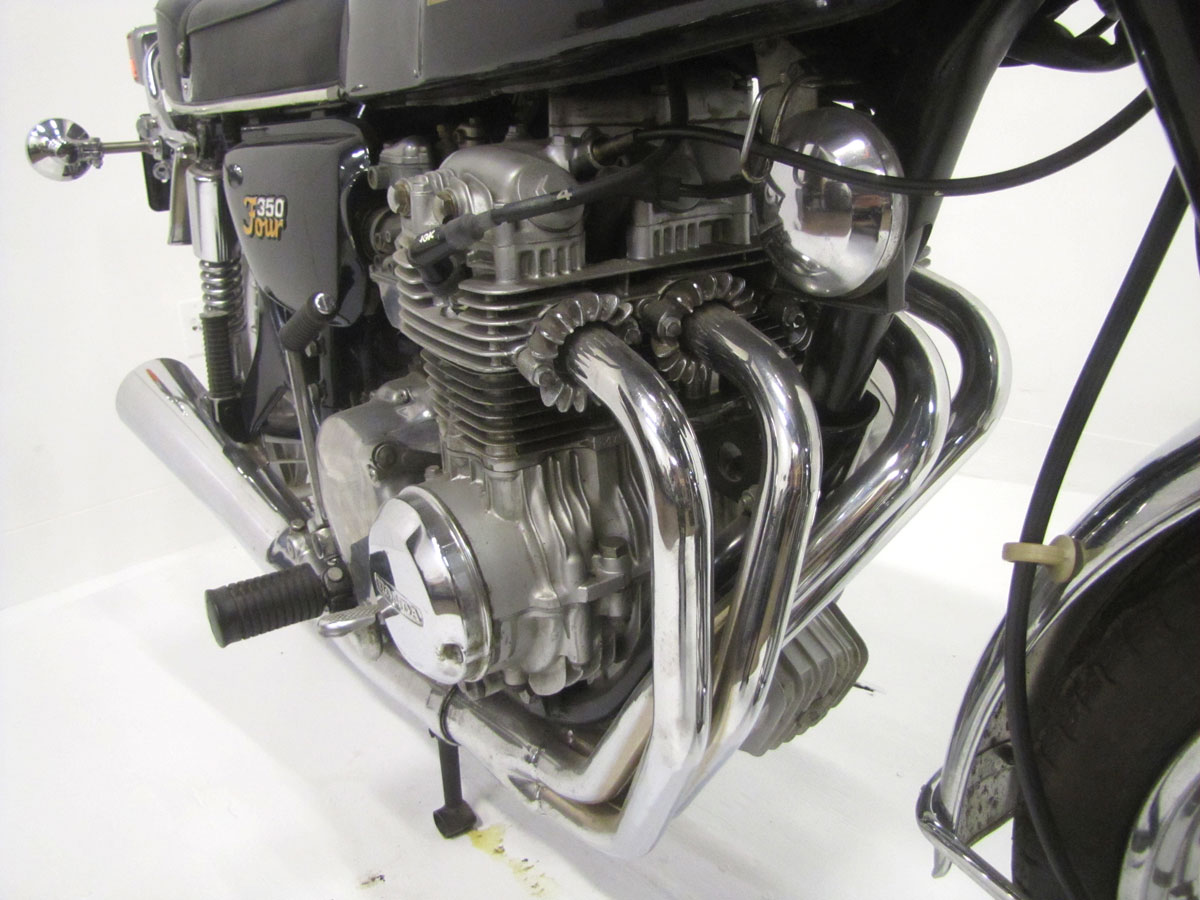
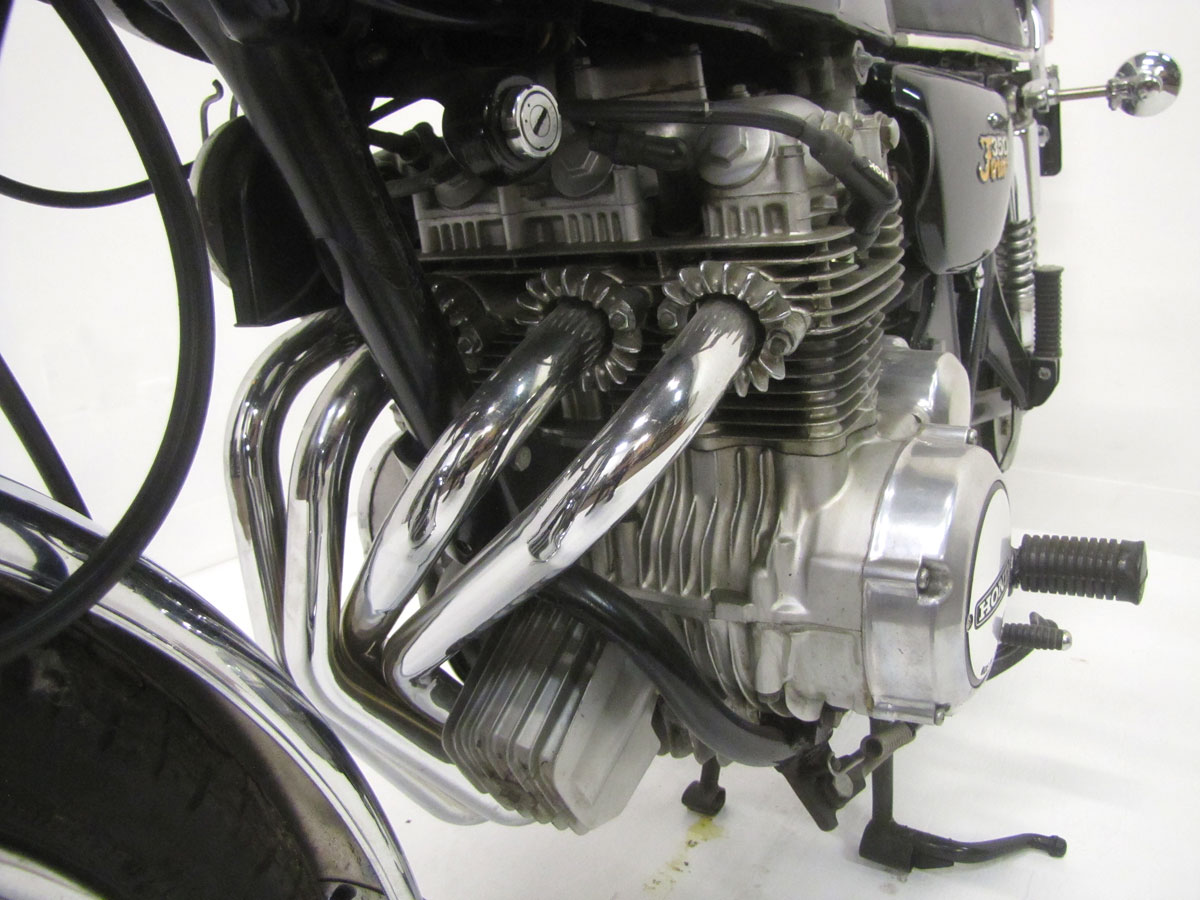
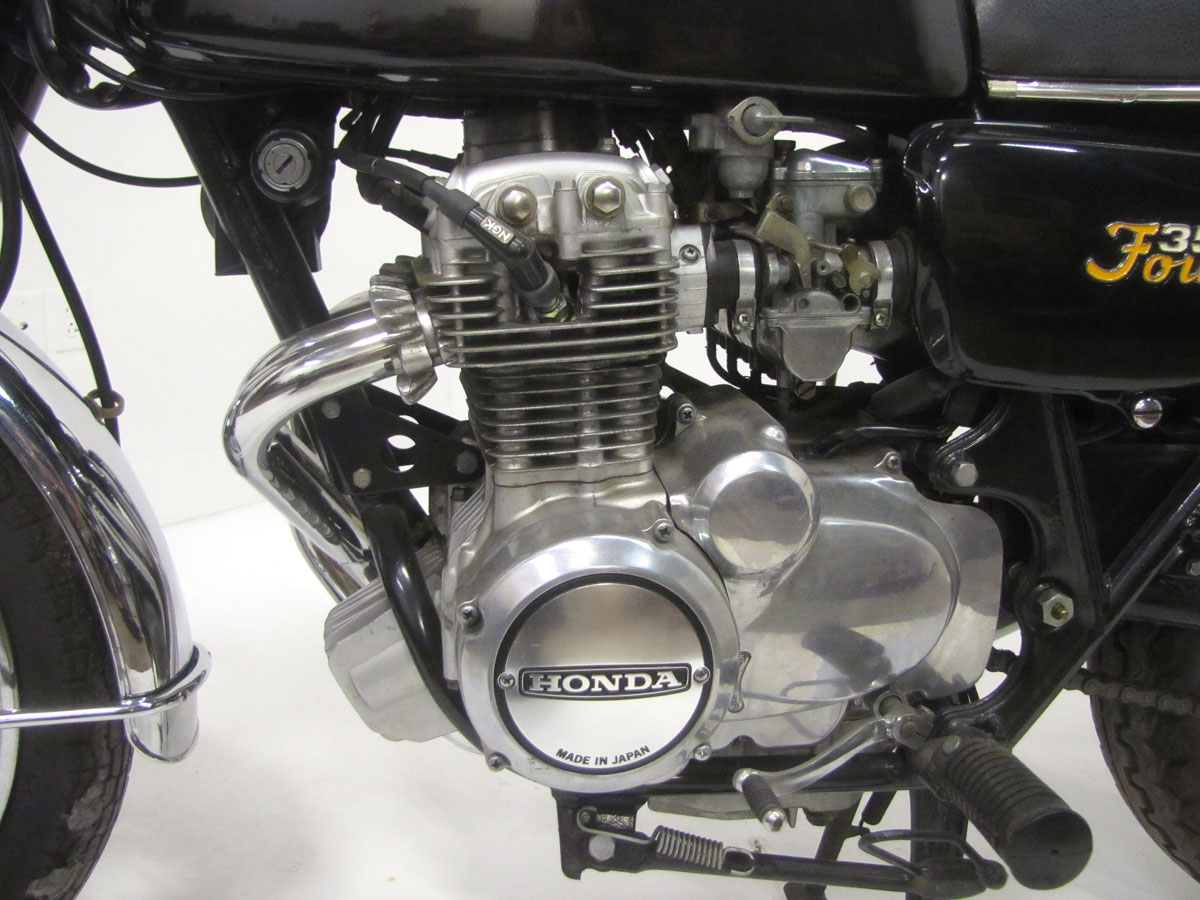
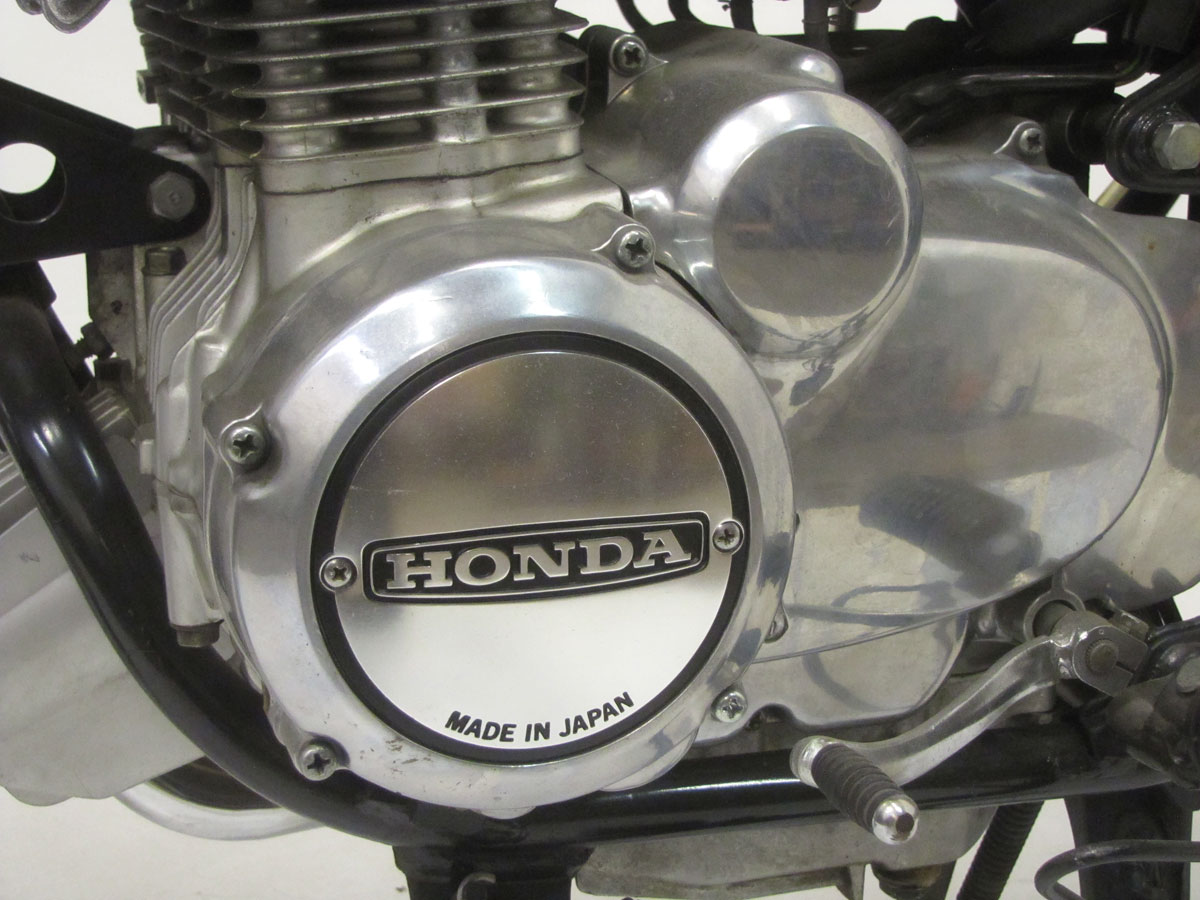


Great coverage on the Hondas. Would also like to see the 72 Kawasaki Z1
In the spec’s sheet red line reads 8,000 & on the tach it is 10,000 ?
“…..typical of in-line fours of the era, you had an 8500 to 10,000 RPM redline …..”
I was citing the range of redlines Honda used for 350’s, 400’s, 500’s, 550’s and 750’s. It varied year to year and model to model, but that was the range where most of the redlines were set; 8500 to 10,000. The smaller motors could run a bit faster.
Bought a brand new Honda 750 four when I was in the service back in 1974. Thanks for bringing back the memories.
I assembled Hondas for a dealership in Rochester, Minnesota from 1973 to 1977. We sold a boat load of CB750, CB500/550 and a few CB350/400. With the exception of the Kaw 900, no one else was in the 4-cylinder game yet. My first street bike was a blue 1975 CB750. Fun memories.
Hi, i’m looking for someone who can tell me perhaps a value or relevant information about my 1971 Honda CB 450, this bike is in mint condition and only has 94 original miles on it, nothing has been changed not the tires not the oil not anything I am the second person who has had possession of this bike. I have a bunch of good photos of it and initially bought it to ride with a friend told me not to have the odometer go over 100 and that it is a very collectible bike the story how I got this from my shipmate is interesting.